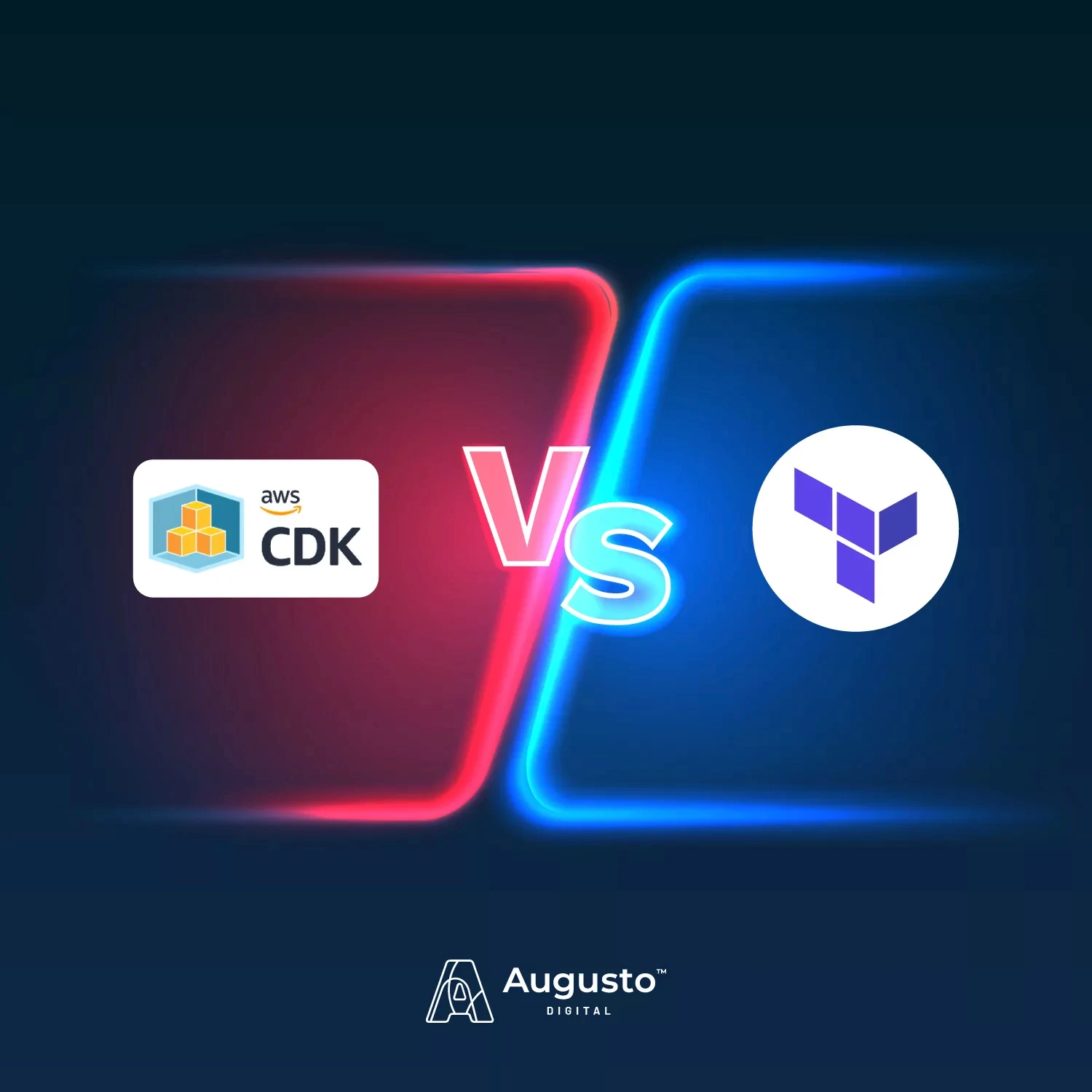In the world of Infrastructure as Code (IaC), tools like Amazon CDK and Terraform have gained significant popularity. Both offer powerful capabilities for defining and provisioning infrastructure resources. While each tool has its own strengths and considerations, understanding their key differences can help you make an informed choice for your infrastructure needs.
Before we dive in, let’s discuss why you might need an IaC solution. Being able to treat your infrastructure as code is beneficial if you have a cloud-based solution because you can automate its deployment and scaling. It can also ensure you meet certain compliance requirements, such as HIPAA, HITRUST or NIST.
When using an Infrastructure as Code solution, you will realize other benefits as well:
Cost Optimization
IaC tools can help to reduce the costs of your infrastructure by optimizing the use of your resources. This can be done by automatically scaling your resources up or down based on demand, or by using spot instances to get discounted pricing.
Auditing and Compliance
IaC tools provide a clear representation of the infrastructure setup in code. This makes it easier to perform audits and ensure compliance with organizational or regulatory policies.
Reduction in Human Errors
By using code to define infrastructure, the chances of human errors in manual setups are minimized. This increases the reliability and stability of the infrastructure.
Scalability
Businesses can easily scale their infrastructure up or down using IaC tools. As the demands on the application increase, Amazon CDK and Terraform allow for the automatic provisioning of additional resources to handle the load.
Consistency
With IaC tools, you can create consistent environments across different stages of development, such as development, testing, staging, and production. This reduces the chances of errors caused by configuration discrepancies between environments.
Reliability
IaC tools can help to ensure that your infrastructure is reliable by providing a consistent way to define and deploy your resources. This can help to reduce the risk of human error and make it easier to identify and fix issues.
Choosing the right tool
Amazon CDK and Terraform are the two predominant choices when it comes to Infrastructure as Code tools, but how do you choose? Consider the following factors:
Developer Skill Set
- If your team is already proficient in a specific programming language, Amazon CDK’s language-based approach might be more appealing.
- Conversely, if your team prefers a declarative approach or needs multi-cloud support, Terraform could be a better fit.
Infrastructure Requirements
- Evaluate the specific infrastructure requirements of your project.
- Consider the level of native integration and AWS-specific features needed to determine if Amazon CDK aligns well with your infrastructure goals.
Community and Ecosystem
- Assess the available community support, modules, and ecosystem surrounding each tool.
- Determine which tool has a more active and compatible community for your desired cloud provider(s).
Amazon CDK

Familiarity for Developers
- Amazon CDK allows developers to define infrastructure using popular programming languages like TypeScript, Python, Java, and C#.
- Developers can leverage their existing programming skills and use standard development tools, libraries, and IDEs.
Higher-Level Abstractions
- Amazon CDK provides higher-level abstractions known as “constructs” that represent AWS resources and services.
- These constructs simplify the provisioning and configuration of infrastructure components, making it easier to define and manage them.
Direct Integration with AWS
- Amazon CDK is specifically designed to work seamlessly with AWS services and APIs.
- It provides native support for AWS constructs, allowing developers to take full advantage of AWS resources, features, and updates.
Type Safety and IDE Support
- Leveraging programming languages, Amazon CDK benefits from type safety and IDE support.
- Developers can enjoy features like autocompletion, code navigation, and refactoring within their preferred IDEs.
AWS Best Practices
- Amazon CDK includes the AWS Construct Library, which provides pre-built, well-architected patterns and best practices for provisioning AWS resources.
- Developers can create infrastructure that adheres to AWS’s recommended architectural guidelines using these constructs.
Terraform

Declarative Language
Terraform uses its own declarative language called HashiCorp Configuration Language (HCL) to define infrastructure.
While it has a learning curve, it offers a consistent syntax for defining resources across different cloud providers.
Multi-Cloud Support
- Terraform is a versatile tool that supports multiple cloud providers, including AWS, Azure, and Google Cloud.
- It allows for managing infrastructure across different cloud environments using a unified workflow.
Large Community and Module Ecosystem
- Terraform has a thriving community and a vast number of community-contributed modules.
- Users can leverage these modules to easily provision and configure various infrastructure components.
Infrastructure State Management
- Terraform keeps track of infrastructure state, allowing it to plan and apply changes incrementally.
- This state management feature helps ensure consistent and reproducible infrastructure deployments.
Both Amazon CDK and Terraform are powerful Infrastructure as Code tools, each with its own strengths and considerations. Amazon CDK’s developer-friendliness, AWS-native integration, and best practices support make it a compelling choice for AWS-centric projects. On the other hand, Terraform’s declarative language, multi-cloud capabilities, and large community make it an attractive option for managing infrastructure across various cloud providers. Ultimately, the choice depends on your team’s skills, project requirements, and personal preferences.
Augusto Can Help!
Our software development services can help you get started with Amazon CDK or Terraform – or help you choose. Contact us today or fill out the form below to get started!
At Augusto, we build cloud-native software applications that take advantage of the distributed computing power of the cloud. This gives you more versatility, unparalleled survivability, and elasticity. Cloud-native applications offer greater agility and more deployment options across the different networks.
Let's work together.
Partner with Augusto to streamline your digital operations, improve scalability, and enhance user experience. Whether you're facing infrastructure challenges or looking to elevate your digital strategy, our team is ready to help.
Schedule a Consult

